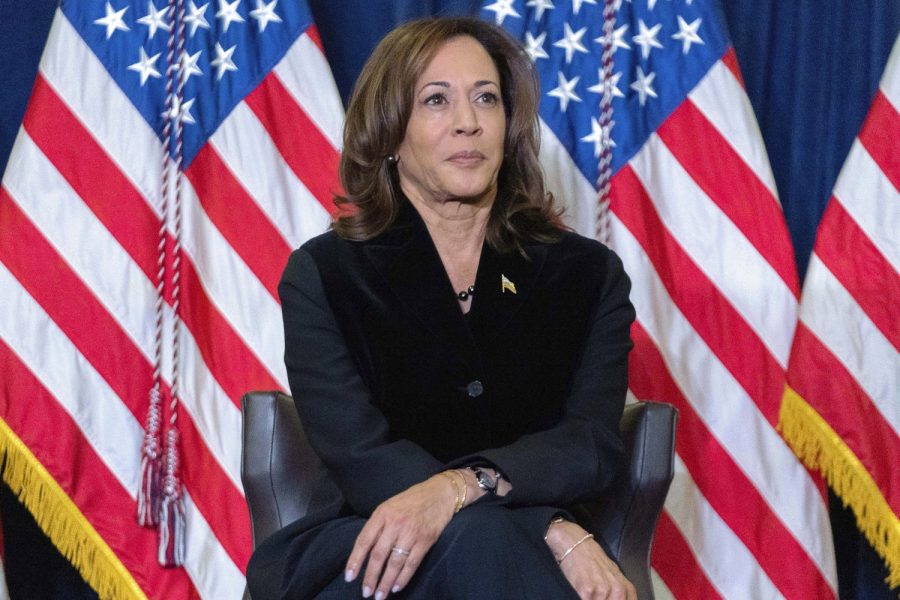
I started working in Congress right before Donald Trump’s first presidential term. As a Democrat, this January feels like a bad case of déjà vu. Yet as the new year begins, I resolve to resist in an unconventional way — to befriend the “enemy.”
Though it’s only been eight years, it feels like decades have passed. Like millions of other Americans, I lost family members during the pandemic. I was part of two historic efforts to impeach Trump. There was a violent attack on the Capitol. For Capitol Hill aides, it was traumatic. My boss armed himself with flagpoles. One friend texted her parents about her clothing in case they needed to identify her body.
When I began my career, being “bipartisan” was an attribute. I started interviews with stories of growing up with two moms in California, playing mediator with my Republican relatives. But America has changed. Resistance during Trump’s first term meant combatting those who were wrong, so we unfriended the crazy uncle online. Those who disagreed with our perspective triggered, angered and exhausted us. As a result, we insulated ourselves. Those with differing worldviews challenged our identity. They became the enemy.
My progressive friends often ask, “How could anyone vote for that man?” referring of course to Trump. The problem is that it’s usually a statement, not a question. If we could understand the answer, we might not find ourselves in this situation again. Without understanding, we will lose, again and again.
I spent the week leading up to the election in Pennsylvania, talking with people who usually vote Democratic. Their perspectives surprised me.
A middle-aged white man, a self-proclaimed Trump voter, held back an aggressive dog so I could talk with his father. Eighty years old and concerned about the border, he was “willing to give Harris a try.”
A grandmother did not care for Trump, but she was upset that her grocery bill had increased substantially.
A disabled Puerto Rican bow-hunter told me “Trump called us trash. My parents would roll over in their grave!” Still, he was undecided. “Everyone cares about the upper class, the middle, but no one cares about … us,” he struggled for words. “I’ll flip a coin.”
After the election, author Sarah Smarsh aptly said, “[People say] Democrats have the better policies. … The Republicans, meanwhile, are the ones validating the pain.”
Understanding how Trump won the election is not an intellectual exercise, it’s emotional. In many ways, it is not about issues, it is about connection. During my most successful conversations with voters, I didn’t advocate. I just listened.
As Jonathan Haidt explains in his book, “The Righteous Mind,” our decisions are driven by emotion and intuition, whereas rational thought largely provides justifications after the fact. Studies show that the more intelligent we are, the harder we work to justify our existing biases, regardless of the truth.
Before we judge all Trump voters as dumb or misguided, we should try to understand them first. This starts with practice. We must learn to be around people we disagree with.
As a congressional staffer, I received my master’s degree from the Army War College, where my classmates were conservative white men twice my age. Some went out of their way to tell me I didn’t belong. Some told me to fetch coffee. Instead of distancing myself, I befriended them. I found common ground, from shared music tastes to a dormant desire to learn golf. It wasn’t always fun, but it was rewarding.
My New Year’s resolution, and my challenge for you, is to befriend someone you profoundly disagree with. You do not have to discuss controversial issues. Steer clear of disagreements at first. Find an area of alignment, whether parenting or a love of reality television. Establish a friendship and build from there. Slowly introduce controversial topics but hang on to that base. Don’t correct everything they say. Let them be wrong and recognize your own ignorance. Be vulnerable and uncomfortable. Most of all, try to relate.
The next four years will be a test for America. Humanizing those we disagree with is the only way to get America back. This is not a naive gesture. Forging genuine relationships is the best way to influence votes and ensure that progressive policies flourish. It is a strategic act.
Winning is not about changing policies; it is about learning to connect better. The very act of relating is an act of resistance to a regime that wants to divide us.
Mariah Carray worked as a legislative aide in Washington, D.C., at the House of Representatives, U.S. Senate and United Nations for more than seven years. She has a master’s in strategic studies with high honors from the Army War College. She is published in the Huffington Post.












